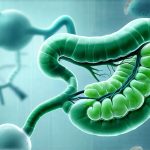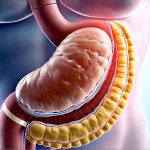The liver is arguably one of the most vital organs in the body, performing hundreds of essential functions – from detoxifying harmful substances and processing nutrients to producing bile for digestion and regulating blood sugar levels. It’s a remarkably resilient organ, capable of regenerating itself even after significant damage, but this resilience has limits. Increasingly, liver damage isn’t solely caused by excessive alcohol consumption or viral infections; over-the-counter (OTC) medications, often perceived as safe due to their accessibility, can pose a substantial risk when misused, overused, or combined inappropriately. Understanding the potential for drug-induced liver injury (DILI) and recognizing its early warning signs is crucial for maintaining long-term health.
Many people assume that because OTC drugs are readily available without a prescription, they’re inherently harmless. This isn’t true. While generally safe when used as directed, even seemingly innocuous medications can become hepatotoxic – meaning toxic to the liver – under certain circumstances. Factors like pre-existing liver conditions, genetic predispositions, age, and concurrent use of other substances (including alcohol) can all influence susceptibility. It’s also important to remember that “safe” doesn’t mean no risk; it means the benefits generally outweigh the risks for the majority of users following recommended guidelines. This article aims to provide a comprehensive overview of recognizing the signs of liver damage potentially caused by OTC medications, empowering you to make informed decisions about your health and seek timely medical attention if necessary.
The Culprits: Medications Most Commonly Linked to Liver Damage
A surprising number of commonly used OTC medications have been implicated in cases of DILI. Acetaminophen (paracetamol), the active ingredient in many pain relievers like Tylenol, is perhaps the most well-known example. While effective for pain and fever reduction, exceeding the recommended daily dosage or combining it with alcohol can lead to severe liver damage. Nonsteroidal anti-inflammatory drugs (NSAIDs) – ibuprofen, naproxen, aspirin – are also potential offenders, though typically less so than acetaminophen. Certain herbal remedies and dietary supplements, often marketed as “natural” alternatives, can similarly contribute to liver injury due to varying levels of active compounds and lack of rigorous quality control. It’s essential to understand that ‘natural’ doesn’t automatically equate to ‘safe.’
The mechanisms by which these medications cause damage vary. Acetaminophen overdose leads to the accumulation of a toxic metabolite in the liver, overwhelming its detoxification capacity. NSAIDs can directly irritate the liver tissue or disrupt blood flow, leading to inflammation and cellular damage. Herbal supplements may contain compounds that are metabolized into hepatotoxic substances or interfere with normal liver function. Furthermore, combinations of medications – even seemingly harmless ones – can create synergistic effects, increasing the risk of DILI. This is why it’s vital to inform your doctor about all medications you’re taking, including OTC drugs and supplements, before starting any new treatment.
The challenge in identifying medication-induced liver damage lies in its often non-specific early symptoms. Many initial signs mimic those of other common ailments, making diagnosis difficult without careful evaluation. This underscores the importance of being aware of the potential risks associated with these medications and paying close attention to your body’s signals. Early detection is key to preventing more severe complications like acute liver failure or chronic liver disease.
Recognizing Early Warning Signs: Subtle Symptoms Not To Ignore
The early stages of DILI often present with vague, flu-like symptoms that are easily dismissed as a passing illness. Jaundice – yellowing of the skin and whites of the eyes – is a classic sign of liver dysfunction, but it typically appears later in the disease process. Before jaundice develops, look out for these more subtle indicators:
- Fatigue: Persistent and unexplained tiredness, even after adequate rest. This isn’t simply feeling tired; it’s an overwhelming exhaustion that interferes with daily activities.
- Loss of appetite: A diminished interest in food or a feeling of fullness after eating only small amounts.
- Nausea and vomiting: These symptoms can be intermittent and may not always be associated with a specific meal.
- Abdominal discomfort: Vague pain or tenderness in the upper right quadrant of the abdomen, where the liver is located. It might feel like bloating or indigestion.
- Dark urine: Urine that appears darker than usual, resembling tea or cola. This indicates increased bilirubin levels, a byproduct of red blood cell breakdown processed by the liver.
These symptoms are not exclusive to liver damage and can be caused by many other conditions. However, if you experience these symptoms after starting a new medication or increasing the dosage of an existing one, it’s crucial to seek medical attention promptly. Don’t self-diagnose; professional evaluation is necessary to determine the cause of your symptoms.
The Progression: More Severe Symptoms and When To Seek Urgent Care
As liver damage progresses, more obvious and concerning symptoms may emerge. These indicate a more serious condition requiring immediate medical intervention. Look for these warning signs:
- Jaundice: As mentioned earlier, yellowing of the skin and eyes is a clear indication of impaired bilirubin processing.
- Pale stools: Stools that are clay-colored or very light in color suggest reduced bile flow from the liver.
- Itching (pruritus): Intense itching all over the body, often without a rash. This is caused by the buildup of bile salts under the skin.
- Swelling in the legs and ankles: Fluid retention due to impaired liver function can lead to edema in the extremities.
- Confusion or difficulty concentrating: Hepatic encephalopathy – brain dysfunction caused by toxins accumulating in the bloodstream due to a failing liver – can result in cognitive impairment.
If you experience any of these severe symptoms, seek immediate medical attention. Do not attempt to manage them on your own. Time is critical when it comes to preventing irreversible liver damage or even life-threatening complications like acute liver failure.
Diagnosis and What To Expect: Testing and Management
Diagnosing DILI can be challenging because the symptoms are often non-specific. A healthcare professional will likely start with a thorough medical history, including a detailed review of all medications you’re taking (prescription, OTC, and supplements). They’ll also perform a physical examination to assess for signs of liver dysfunction, such as jaundice or abdominal tenderness.
Diagnostic tests commonly used include:
- Blood tests: These will evaluate liver enzymes (ALT, AST), bilirubin levels, albumin levels, and prothrombin time (PT) – indicators of liver function. Elevated liver enzyme levels suggest liver cell damage.
- Imaging studies: Ultrasound, CT scan, or MRI may be used to visualize the liver and identify any structural abnormalities.
- Liver biopsy: In some cases, a small sample of liver tissue is taken for microscopic examination to confirm the diagnosis and assess the extent of damage.
Treatment for DILI focuses on stopping the offending medication immediately. Supportive care includes hydration, nutritional support, and monitoring of liver function. In severe cases, hospitalization may be necessary for more intensive management, including medications to reduce inflammation or prevent complications like bleeding. The good news is that in many instances of DILI, the liver can recover fully once the causative agent is removed. However, chronic liver disease can develop if damage is prolonged or severe. Regular follow-up with a healthcare professional is essential for monitoring liver health and preventing recurrence.


















